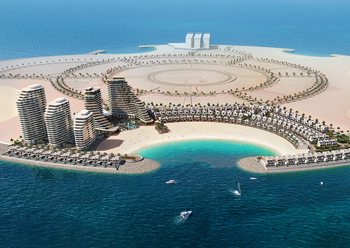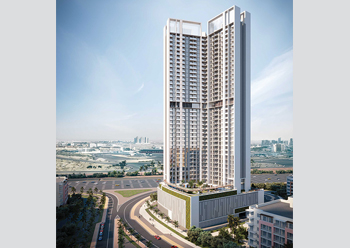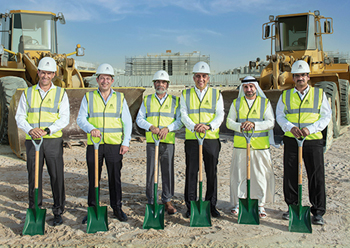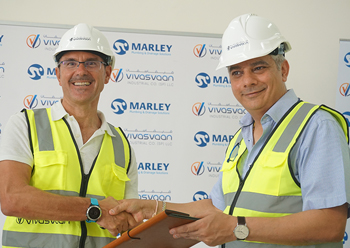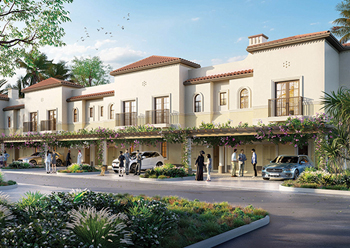
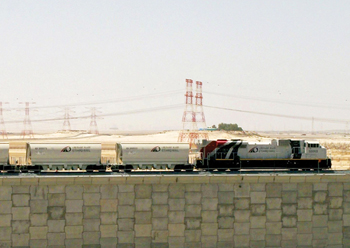 UAE National Rail Network passes through key manufacturing hubs and urban centres.
UAE National Rail Network passes through key manufacturing hubs and urban centres.
Etihad Rail has announced the completion of the connection between the railway freight terminal at the Industrial City of Abu Dhabi (ICAD) – which is the largest inland freight railway terminal in the country – and the UAE National Rail Network.
The company completed track-laying works and conducting successful tests on the new line, which extends from the borders of Saudi Arabia to the port of Fujairah, on the eastern coast, passing through key manufacturing hubs and urban centres, said a Wam news agency report.
This achievement comes in line with the goals of the UAE Railway Programme. Upon the completion of Stage Two of the UAE National Rail Network, Etihad Rail will provide logistics solutions from the railway terminal, which is located at the heart of ICAD.
Mohammed Al Marzouqi, Executive Director of Rail Relations Sector at Etihad Rail, said: “Connecting the railway freight terminal at ICAD with Etihad Rail’s main line ensures our readiness to start providing our clients with logistics solutions by linking Abu Dhabi with various industrial centres and import and export points. This milestone brings us closer to achieving our goal of providing an integrated transport system that connects the industrial and manufacturing centres with freight terminals and ports across the emirates.
“The strategic location of the ICAD railway freight terminal will also drive value for all our customers as it is the largest indoor railway freight terminal in the UAE.”
Etihad Rail is constructing the railway freight terminal in ICAD, which will span over 2.7 million sq ft. It will comprise over 22 buildings and major structures to support operations, processing up to nine trains each day.
It will facilitate the distribution of goods across the countries of GCC and UAE, where it will connect quarries in the northern emirates to industrial centres in the Musaffah area, in addition to connecting Ruwais, Khalifa Port and the container companies in Dubai within Jebel Ali Port. The containers will be hauled by rail to and from other freight facilities following a road journey to the end-user location.








.jpg)




.jpg)




























.jpg)

































